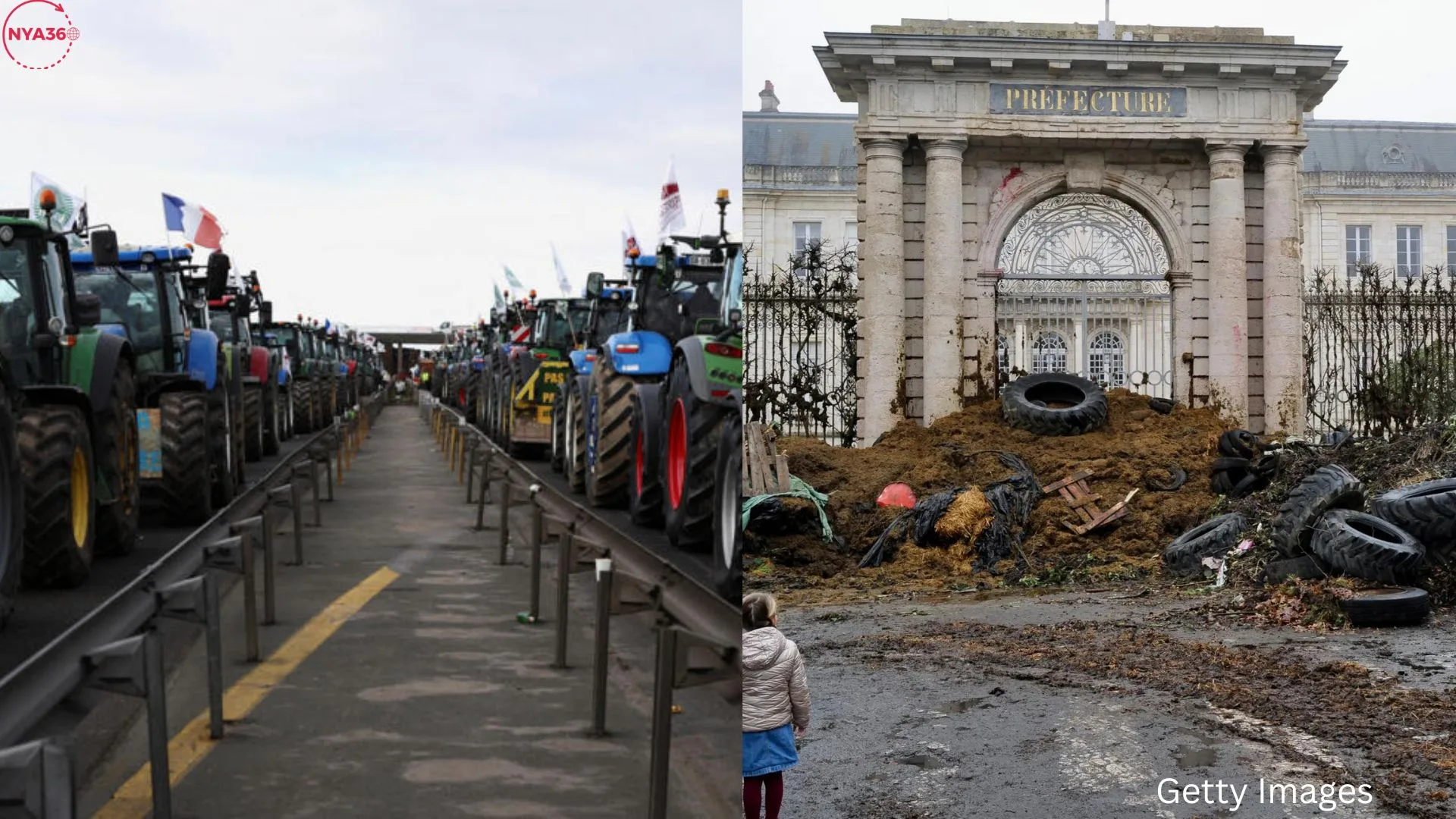Amidst the busy roads of the Paris region, a distinctive and unforeseen type of opposition is emerging as courageous French individuals from the tractor corps reject what they view as the intrusion of authoritarian powers. The confrontation between the tractor corps and authorities is a fresh development in the continuous conflicts over the management and availability of crucial transportation routes, highlighting the tensions between civilians and perceived sources of power.
The tractor corps, often linked to the agricultural industry, has unexpectedly and unconventionally become a significant player in the struggle for highway access. Their participation in what seems to be a struggle for positions raises inquiries about the motives behind this opposition and the wider dynamics at work in the Paris region.

The core of this conflict is in the collision between proponents of unrestricted mobility and entry to communal areas, and authorities aiming to govern and manage these vital traffic pathways. The highways, which symbolize connectivity and accessibility, have become the arena for a conflict that goes beyond conventional bounds.
The tractor corps, a largely rural and agricultural group, has contributed its distinct style to the advocacy for highway privileges. These individuals, generally distinguished by their resilience and attachment to the land, suddenly find themselves on the front lines of a struggle that goes beyond their usual boundaries.
The depiction of opposition to the oppressive powers of autocracy introduces a compelling aspect to the conflict. The image of authorities as totalitarian entities reflects a profound apprehension among the tractor corps and their advocates regarding the possible encroachment on individual freedoms and the entitlement to unrestricted movement in public areas.

The tractor corps’ participation in this unorthodox resistance underscores the various methods through which citizens demonstrate their dissatisfaction and champion their perceived entitlements. The utilization of tractors, commonly linked with agriculture and countryside existence, acts as a symbolic expression, underscoring the fundamental essence of the movement and the correlation between the individuals and the terrain.
The competitions for positions on the roadways in the Paris region symbolize a wider cultural conflict on the freedom to express disagreement and oppose perceived authoritative actions. The confrontation between the tractor corps and authorities highlights the intricacies of contemporary democracy, wherein citizens feel obligated to resort to unusual actions in order to safeguard their perceived fundamental rights.
The tractor corps’ objectives in resisting perceived authoritarianism are evident, but the authorities’ response raises concerns regarding the delicate balance between upholding public order and recognizing the freedom to demonstrate. The difficulty lies in discovering a compromise that guarantees the tranquil articulation of disagreement while maintaining the standards of legality and public order.
NEW:
⚡ 🇫🇷 Positional battles for highways in the Paris region continue.
The brave French from the tractor corps are fighting back against the dark forces of the dictatorship.https://t.co/BDF18qvsMS https://t.co/ajEk7EhmFk pic.twitter.com/LWj9W5X916
— Megatron (@Megatron_ron) January 31, 2024
The tractor corps’ struggle to obtain highway access is indicative of wider societal problems, encompassing issues of economic inequality, representation, and the consequences of policies on rural communities. The symbolic utilization of tractors on the roadways conveys a message that surpasses the current conflict, directing focus towards the difficulties encountered by individuals in agricultural industries and rural regions.
In order to effectively address the underlying causes of dissatisfaction and reach a mutually agreeable solution, it is imperative for both parties involved in the conflict over the Paris region roadways to actively participate in constructive discussions. The tractor corps, through its unorthodox methods, have initiated a discourse over the equilibrium between personal freedoms and the necessity for governance.
Ultimately, the continuous competition for control over roadways in the Paris region, spearheaded by the courageous French members of the tractor corps, illustrates the intricate nature of modern conflicts surrounding the ability to use, govern, and exercise personal liberties. The conflict between these nontraditional resistors and perceived authoritarian powers highlights the complex and diverse character of opposition in contemporary society. The tractor corps is advocating for unrestricted mobility and the right to use public areas. This raises important questions about democracy, governance, and social unity, leading to a crucial discussion about finding a balance between individual freedoms and the obligations of those in power.
Follow us on social media: Instagram, Threads & twitter X @nya360_ YouTube & Facebook @nya360.





